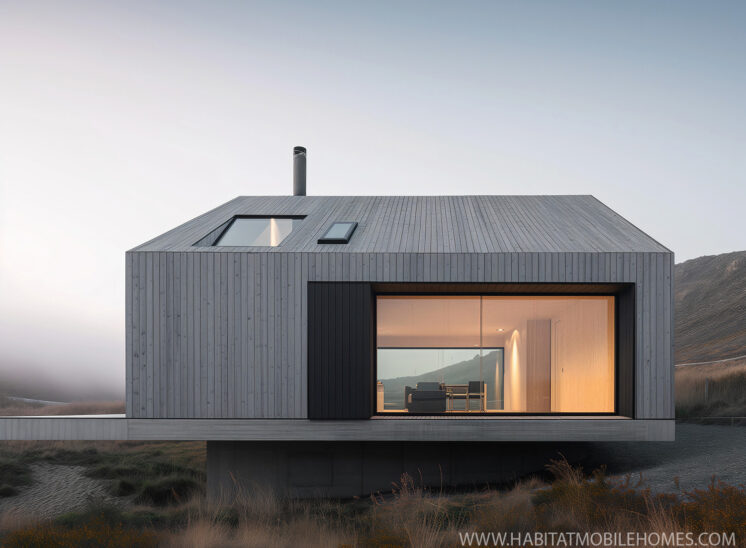Is the advice in books like "field to farm" any good?
The strategy you've outlined from "Field to Farm" focuses on a specific approach to gaining planning permission for agricultural development in the UK, which leverages the size of the land plot and the intended agricultural use to facilitate the building of a barn and residing in a mobile home during the construction phase. Here's a breakdown of the process as it generally applies:
- Land Acquisition: Purchase a plot of land of a certain size that is deemed suitable for agricultural use. The specific size requirement can vary based on local planning policies and the type of agricultural activity planned.
- Planning Permission for Agricultural Development: Apply for planning permission to build a barn or other agricultural buildings on the land. Planning policies in the UK are more favorable towards developments that support agricultural activities, especially in rural areas where such developments are seen as essential for the local economy and community.
- Temporary Residence in a Mobile Home: While constructing the barn or agricultural building, the landowner can apply for temporary permission to live on the site in a mobile home. This permission is usually granted on the condition that the mobile home is necessary for the landowner to oversee and facilitate the agricultural development.
- Long-Term Planning and Development: The initial planning permission for the barn and the temporary residence might be part of a longer-term strategy to establish a viable farming operation. In some cases, successful agricultural development can lead to the possibility of converting temporary residence permissions into permanent ones, though this is subject to stringent planning criteria and is assessed on a case-by-case basis.
This approach leverages the allowances made within the UK planning system for agricultural development and the need for farmers to be on-site to manage their operations effectively. It's a strategic way to navigate the complex planning permissions process, especially in areas where development is tightly controlled to protect the countryside and agricultural land.
WHAT ARE THE PROBLEMS?
Addressing the nuances and potential misunderstandings about UK planning laws related to living in a mobile home during construction and erecting agricultural buildings on land, it's crucial to clarify these two specific points:
- Living in a Mobile Home During Building or Engineering Works DOES NOT EXTEND TO FAMILY, NO CHILDREN CAN LIVE ONSITE: The regulations permitting someone to live in a mobile home on their land while undertaking building or engineering works are indeed restrictive and primarily designed to accommodate workers involved in the construction process. This permission does not extend to the workers' families, especially if there are children involved. The intention behind such regulations is to ensure safety and to address other concerns related to temporary living arrangements on construction sites. Individuals considering living on-site in a mobile home during construction must be aware that this allowance is narrowly defined and does not provide a blanket permission for an entire family to reside there during the building phase.
- Erecting Agricultural Buildings Without Planning Permission THERE MUST BE A BARN ONSITE ALREADY: Regarding the construction of barns or other agricultural buildings on a piece of land, the regulations are similarly specific and stringent. You are allowed to erect, extend, or replace such buildings without full planning permission under certain conditions, typically under the umbrella of permitted development rights for agriculture. However, these rights are contingent upon the land already being used for agricultural purposes, and there are limits on the size and scale of what can be built. If the site is an open field with no existing agricultural structures, you cannot erect a new barn without obtaining planning permission. The misconception that any large piece of land can automatically host a barn under permitted development rights is incorrect; these rights generally apply to the replacement or extension of existing structures rather than the construction of new ones from scratch.
- Purpose of On-Site Residence: The allowance for living on-site in a mobile home is strictly tied to the necessity of being present for the construction or engineering work. It's intended to support the logistical needs of the project, such as security, oversight, and the practicality of having a hands-on presence to manage the work effectively.
- Limitations on Non-Construction Activities: If it's found that the primary activity of the individual living on-site is not directly related to the construction or engineering works — for example, if they are primarily engaged in a different occupation off-site and only conducting construction work in their spare time, such as weekends — this could be in violation of the terms under which the temporary residence was permitted. The regulations are designed to prevent the misuse of this provision as a means to establish residential use on a site without the appropriate planning permissions for such.
- Council's Stance and Enforcement: Local councils are vigilant in ensuring that the conditions for temporary residence on-site are strictly adhered to. If the council discovers that the actual use of the mobile home does not align with the stipulated conditions (i.e., the person is not actively engaged in construction or engineering works during the workweek), they have the authority to take enforcement action. This could range from requiring the removal of the mobile home to other legal penalties for breaching planning control.



